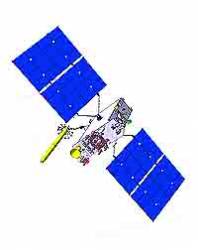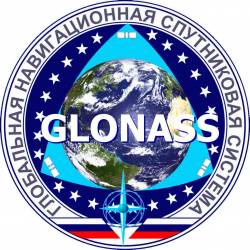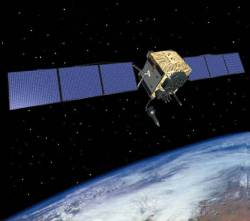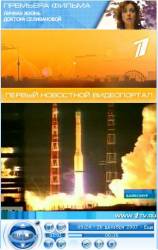 GLONASS-K satellite
GLONASS-K satelliteThree GLONASS-M satellites launched March 2 began transmitting healthy navigation messages today (March 28).
The Russian GNSS operational constellation now includes 23 spacecraft, including two spares in orbital plane III, slots 22 and 23, as well as GLONASS space vehicle 716, which remains in maintenance status with a malfunctioning signal generator.
Three GLONASS-M satellites launched March 2 began transmitting healthy navigation messages today (March 28).
The Russian GNSS operational constellation now includes 23 spacecraft, including two spares in orbital plane III, slots 22 and 23, as well as GLONASS space vehicle 716, which remains in maintenance status with a malfunctioning signal generator.
“We decided to have two back-up satellites in GLONASS, similar to GPS,” Yury Urlichich, director-general of the Russian Space Device Engineering company, told a press conference during the InfoSpace forum in Moscow on March 26.
Six more satellites are scheduled for launch this year, including the first GLONASS-K spacecraft, with a full operational constellation of 24 satellites expected to be in place by the end of this year, according to Grigoriy Stupak, deputy chief designer for GLONASS.
Currently, the Joint Stock Company “Information Satellite Systems – Reshetnev Company” (JSC “ISS-Reshtetnev”) is conducting tests on the first GLONASS-K demonstration satellite. The test sequence includes evaluation of the onboard computer and telemetry, command, and ranging systems as well as measuring the antenna RF parameters and electromagnetic compatibility testing, according to a March 25 JSC “ISS” Reshtenev press release published on the Russian Federal Space Agency (Roscosmos) website.
Two full-size Glonass-K engineering qualification models (EQMs) for further thermal vacuum tests (TVTs) tests are being manufactured by the company. TVTs represent a crucial step for the GLONASS-Ks, which unlike previous generations of GLONASS satellites will not be pressurized space vehicles that must operate in the vacuum of outer space.
Dynamic tests of the prototype EQMs will begin in May to verify the spacecraft stability at vibration and acoustic loads, as well as the conditions that occur during transportation and launch sequence.
JSC “ISS-Reshetnev,” which builds the GLONASS satellites, was established on March, 3, 2008, by reforming the FSUE “Academician M.F. Reshetnev Nauchno-Proizvodstvennoe Obiedinenie Prikladnoi Mekhaniki” (FSUE “NPO PM”).




